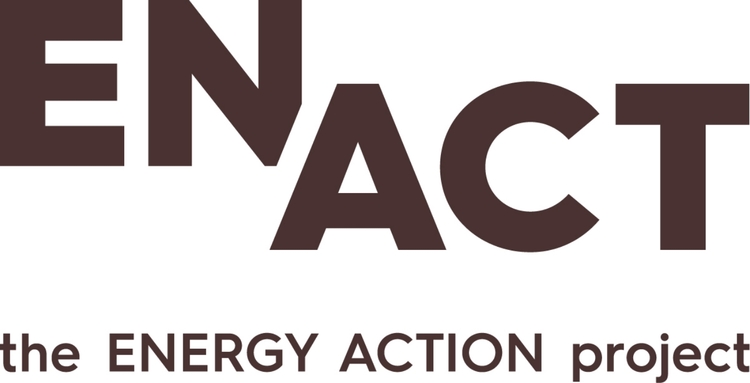Living without electricity has been the norm for thousands of households across Croatia — for years or even decades.
Following the breakup of Yugoslavia, a 1991 law stipulated the privatisation of all state-owned assets, including the energy, transport and water industries.
“It basically destroyed our country,” says Mileta. “Many people, especially young, left because of the economic depression and continuous destruction of the economy. People stopped believing in the election system: not many people go out to vote, even now, because they don’t think anything will change. And this remains a huge problem when it comes to mobilising people for environmental and energy issues, too.”
Systemic neglect has left many Croatian households living in energy poverty. Photo: Goran Jakus
The combination of low public awareness and Croatia’s political climate makes achieving energy justice hugely challenging. But organisations, such as FoE Croatia, have turned to storytelling to illuminate the country’s energy reality.
Storytelling has long since helped crystallise arguments in energy and climate research, providing emotive evidence to hard data.
“By focusing on the stories of people who were living in energy poverty, we noticed it was much easier to reach the wider public and actually explain what energy poverty is — to show them how people in the 21st Century are living,” says Mileta, who used 21st Century methods to do that, including: short video interviews with those affected (on a volunteer-basis), text quotes from local celebrities, memes and more. “Media were especially interested in the issue, with many companies reaching out for interviews.”
Receiving donations from over 500+ private citizens and organisations, FoE Croatia’s solutions-focused campaigns have translated into tangible solutions for Croatians living in energy poverty.
The 2020 Ray of Sun - Light of Hope campaign, for example, raised enough money to install solar energy systems in six households. Powering up some of those households for the first time in over ten years was a euphoric moment for families used to coping without electricity.
FoE Croatia campaigns have translated into tangible solutions for Croatian citizens living in energy poverty. Photo: Zelenka Akcija
Behind the project was another citizen-led effort organised by the People for People Initiative (Ljudi za ljude), which took on the task of collecting data that helped FoE Croatia identify households most in need of electricity. Data that, at present, the State does not collect.
People for People has also been instrumental in the Ray of Sun - Light of Hope campaign. Co-founder Branka Bakšić Mitić, deputy mayor of the City of Glina in Sisak-Moslavina County, is unique because of the political influence her involvement brings.
“Mitić is one of the people who really do the work on the ground, with people, day by day,” says Mileta. “She knows everyone in this area. Her help with contacts and basically mapping who needed electricity was vital to the campaign.”
Self-organising citizens have been instrumental in alleviating households in energy poverty. Photos: Celenka Akcija
Thanks to their off-grid solar systems, some households selected for the Ray of Sun - Light of Hope campaign were some of the few who experienced no loss of power following the 29 December 2020 earthquake. While others — who have no choice but to rely on grid electricity and State protection — lost everything.
Storytelling, says Mileta, can trigger political impetus, which — even when demonstrated on a small, local scale as by Mitić — changes lives.
The European Green Deal: a catalyst for national change?
Launched in late 2019 as Europe’s ‘man on the moon moment,’ the European Green Deal (EGD) is a set of policy initiatives that aim to ensure the region reaches its goal of climate neutrality by 2050. In turn, the EGD obliges member states to adjust national climate and energy plans accordingly by 2023, setting targets for energy availability, diversification of energy sources and reduced energy demand.
Until recently, Croatia has been dubbed a ‘passive observer’ of the EGD, in part because of its continued investment in liquefied natural gas (LNG). To a degree, timing has worked against Croatia: in 2019 — just months before announcing the EGD — the European Commission approved a new LNG terminal project in Croatia, with a budget of €124 mln, which began operation in January 2021.
“Progress is slow,” says Mileta, who argues the EGD policies are not ambitious enough. “But without it, I think the situation would be even worse: no one would do anything. Croatian politicians are tight with the industry, and gas lobbies here are strong. But now they’re being pushed to finally make more progressive energy policies.”
The EGD rollout, says Mileta, is unlikely to spur immediate positive change in Croatia. But based on the experience of using storytelling to spur social action after the earthquake and during the pandemic, she and her colleagues at FoE Croatia are optimistic about influencing a new, just discourse for the country.
“We worked together with other organisations from our area, but also nationally, to come up with a list of demands to the government for a green recovery following the earthquake. So that the new houses that will be built will be energy efficient and have access to clean energy,” she says. “We’ve seen more and more people engaging in these issues when, even just seven years ago, that would have been impossible.”
Sources:
https://www.europeandatajournalism.eu/eng/News/Data-news/It-s-time-for-Croatia-to-embrace-the-European-Green-Deal
https://www.offshore-energy.biz/croatias-lng-terminal-inaugurated/
https://www.sciencedirect.com/science/article/pii/S2214629617302050




